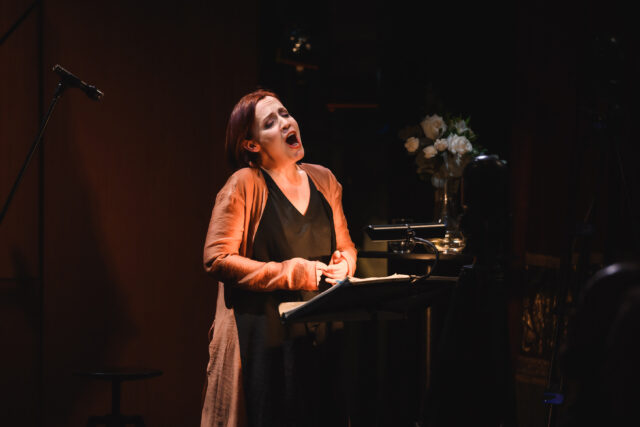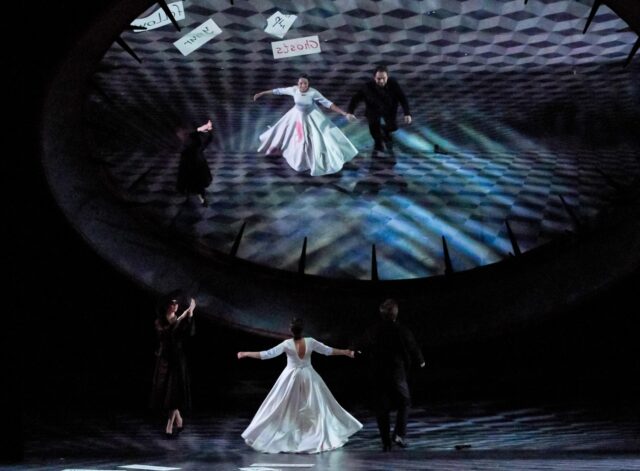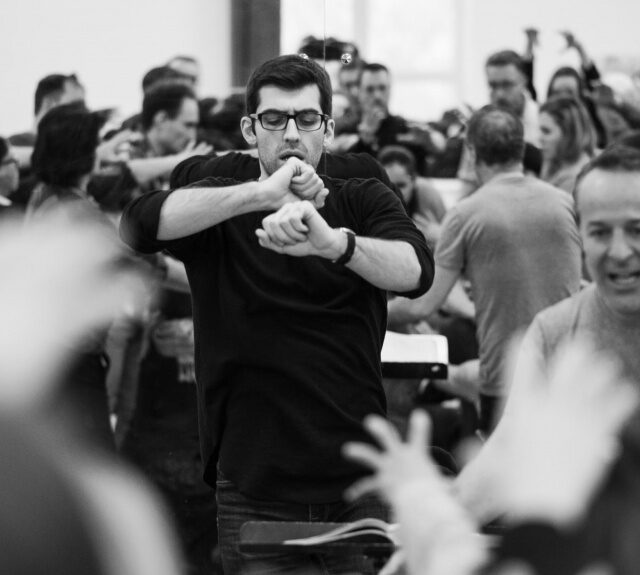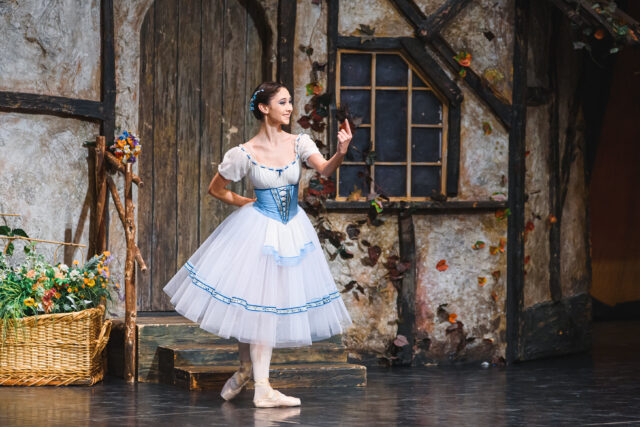Perm, too, is a city that never sleeps. At least not at night, when motorbikes roar through the inner city with an ear-splitting din; soundproof windows are of no use here, and one lies awake, puzzling over this strange city in the foothills of the Urals founded by the doughty statesman Vasily Nikitich Tatishchev in 1723, when copper was discovered in the region. But what could nowadays draw people to this sleepy dump of a million inhabitants whose colourless past as a centre of the Soviet armaments industry is reflected not only in the prefabricated buildings in the inner city but also in the faces of the people who wander dispiritedly through its streets?
There are two reasons to fly from Moscow, six hundred miles to the west, and come to this home of urban dreariness. First, there is an opera house that can stand comparison with the major houses in Moscow, St Petersburg and Novosibirsk and which this year alone received no fewer than four Golden Masks – the highest theatre awards in Russia. There has also been a first-rate ballet company here since the Leningrad Ballet was evacuated here during the Second World War. And, second, this opera house has been run since February 2011 by a forty-one-year-old conductor who is among the most interesting and promising artists of the present day, a hugely talented individual who has in the meantime proved a sensation on the international stage.
His name is Teodor Currentzis. A Greek national, he decided to study in St Petersburg, basing his decision on the fact that he feels closer to the Russian mentality and sentimentality than to the intellectual and spiritual climate in any other centre of music. He ended up being taught by the legendary Ilya Musin, who described him as his best pupil and provided him with massive support. Following Musin’s death in 1999, Currentzis had to decide where he should stay. An opportunity arose to avoid the power struggles in St Petersburg and Moscow and to launch his career as an unknown in distant Novosibirsk. Here he founded the ensemble MusicAeterna, which performs on new or period instruments depending on the work in question. And he also formed a choir, the New Siberian Singers.
This choir has in the meantime received numerous awards and is now so famous that when the then governor of Perm, Oleg Chirkunov, attended a concert under Currentzis’s direction, he could hardly hide his enthusiasm. «I saw the fire in his eyes,» recalls the former governor. «He promised to turn Perm into a place to which people would come flocking from all over the country in order to listen to music.» And so Chirkunov not only engaged Currentzis as his conductor but allowed him to bring his orchestra and choir with him to Perm. Such a case is unique in the history of music, and yet it does not seem so absurd to anyone who attended the concerts in Perm’s historic opera house that took place within the framework of a week-long festival in honour of the ballet impresario Serge Diaghilev. Currentzis is quite literally idolized in Perm not only by his audiences but also by his musicians and singers. Not only at his concerts is there a vague whiff of incense, but many of his rehearsals are almost akin to acts of worship or even religious services, the ladies in the chorus being reduced almost literally to a state of religious ecstasy.
How has this come about? What powers of seduction, what magic does Currentzis have at his command? And how can it be that an orchestra like Michael Gielen’s SWR Symphony Orchestra, which has been brought up to think along rational lines, should have appointed Currentzis as its principal guest conductor and that the Munich Philharmonic, which Currentzis is conducting today and in the coming days, briefly considered choosing him as its new principal conductor instead of Valery Gergiev?
Currentzis’s live concerts provide compelling answers to these questions. But even his recorded performances – notably an extraordinary recording of Mozart’s Requiem available from Alpha Productions – allow us to sense the powerful draw and the precise power of this conductor as he draws players and public into his sway. One is struck first and foremost by musical impressions that are all the more surprising for the precision with which they are fashioned.
The sounds of the period woodwinds and the old brass instruments – trombones that have matured over the centuries and strings that are fermented to perfection. It is from this soil that the chorus crawls – without its sibilants and its tendency to slur the words, it would be unbeatably brilliant – and in its song of lamentation it spreads out like a pile of worms, an intricate knot of suffering, an ever-growing purgatory. And sometimes a string cracks against the neck of the cello, painful and yet making a musical sound. In Mozart’s day – unlike today – composers did not write music that caused instant, immediate pain. And the overall sound was never the result of chance but stemmed from detailed considerations, from instinctual understanding and sympathetic realization.
Currentzis combines these abilities. Suddenly one hears things that had previously been swept under the carpet of a rumbling bass and hidden behind a veil of soprano hysteria. Nowadays this Requiem often sounds as if it had been written by a present-day composer directly reproducing the emotions that it evokes, as if the trombones should bray on the Day of Judgement like the tempest at the Battle of Gravelotte, sounding for all the world like ships’ sirens, while the sopranos screech like teenagers at a pop concert.
But what do we hear with Currentzis? Instead of insistently infernal trombones, we hear above all the cellos emerging nervously from the musical fabric, trembling darkly, and choral sopranos who fade away ethereally at the end. We find ourselves standing in limbo and yet are able to catch a glimpse of Heaven – this is how Mozart humanized the Old Testament vision of terror.
Currentzis goes even further and ends the Last Judgement in the «Confutatis». Here there is audible hope of heavenly salvation, and the tears of the «Lacrimosa» are in no small part tears of joy. But what do we hear at the end of the «Lacrimosa»? With its powerful dramaturgy, this altogether Bruegelesque imagery is conjured up with the help of jovially jingling bells produced by the chains of a censer – Mozart’s janissary music blended with the thick sounds at the end of the chorus and continuing to tinkle even during the whole bar’s rest in the orchestra. This is the point at which Mozart broke off his sketch, and his pupil Franz Xaver Süßmayr continued to work on the score in so sympathetic a manner. This pealing of bells is found in Currentzis’s recording – and only here. It sounds like the bells of the ministrant receding into the distance and recalling the tinkle of sleighbells: a minor change that has a great and moving effect.
Currentzis has a powerful feeling for this sort of thing. He feels how much space each sound requires in order for it to blossom and he senses how quiet a sound can be if it is to create an even more intense impact than a fortissimo. Everything about him exudes power and intensity. And that is why musicians and audiences love him.
Helmut Mauró | Süddeutsche Zeitung



